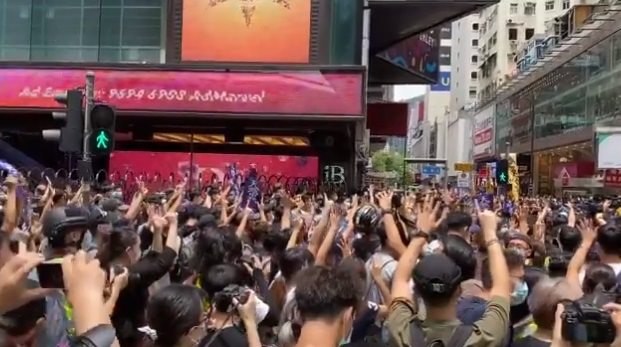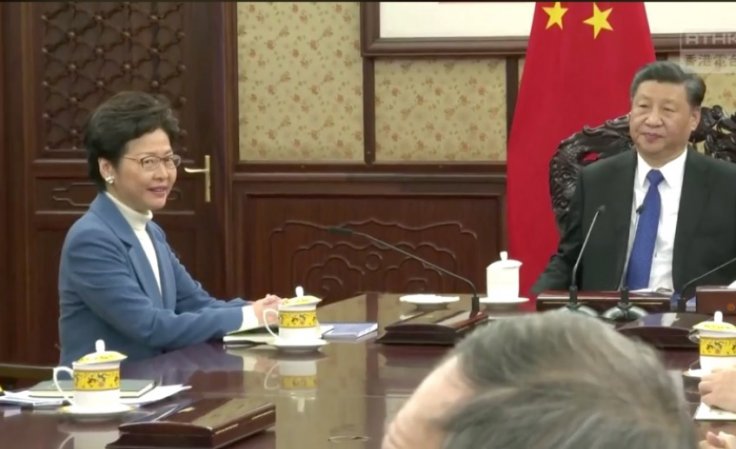The Trump administration is likely to impose fresh sanctions against more Chinese officials over their alleged role in crushing the pro-democracy movement in Hong Kong. More than a dozen Chinese officials are under the radar, report say. The development comes in the backdrop of the disqualification of elected opposition legislators in Hong Kong by Beijing.
The sanctions against the Chinese officials could come as early as on Monday, Reuters reported, citing a U.S. official familiar with the matter. However, the U.S. State Department and the White House did not respond to requests for comments.
In a move dubbed as "the death-knell of Hong Kong's democracy fight" four Hong Kong parliamentarians were disqualified in November. The legislators were called "unpatriotic" by Beijing. China's highest legislative body ratified the disqualification.
The Reuters report on Monday says 14 people who are on the U.S sanctions list include high-ranking officials of China's parliament, National People's Congress. Also included are four members of the Chinese Communist Party.

The official, who spoke on the condition of anonymity, added that officials from both Hong Kong and the mainland would be sanctioned. China's foreign ministry did not respond to the report, added Reuters.
Pro-democracy activists in Hong Kong had said it was another instance of Beijing's intent to destroy Hong Kong's freedoms and the culmination China's six-year-long effort to "extend their jurisdiction over Hong Kong completely". They said the move undercut the separation of powers and annulled the basic law. They said the move meant that that 'one country, two systems' in Hong had come to an end.
"This is an actual act by Beijing to sound the death-knell of Hong Kong's democracy fight ... From now on, anyone they find to be politically incorrect or unpatriotic or simply not likeable to look at – they can just oust you." legislator Claudia Mo had said.

The expulsion of Hong Kong legislators was met with high levels of resentment in the West. The Five Eyes intelligence-sharing group comprising Australia, Britain, Canada, New Zealand and the United States condemned the move, saying it was part of efforts to silence critics in the self-ruled city.
In the local elections held in the self-ruled city in 2019, pro-democracy candidates had registered a thumping win, underscoring the trouble that lies ahead for the leadership in mainland China. In a landslide victory, the democrats won in 388 seats, whereas pro-Beijing candidates won in 58 seats. The city of 7.4 million people went to the polls under the shadow of violent protests but the polling itself was peaceful and no violent incident was reported.
Hong Kong's Opposition political leaders are up in arms against Beijing over the controversial national security law that China rolled out in the city. The law is aimed at sealing Hong Kong's "second return" to the motherland after Britain's 1997 handover, the lawmakers say.
In August, Hong Kong police arrested two opposition lawmakers in relation to anti-government protests in July last year. Police confirmed Democratic Party lawmaker Lam Cheuk-ting and his colleague Ted Hui were among at least 10 people arrested.
The U.S had earlier warned financial institutions doing business with individuals it holds responsible for Beijing's crackdown on Hong Kong.








